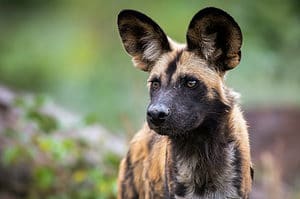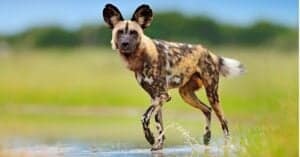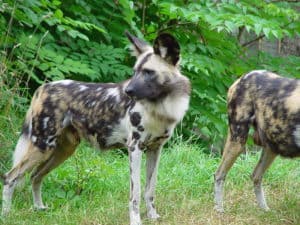Continue reading for our analysis...
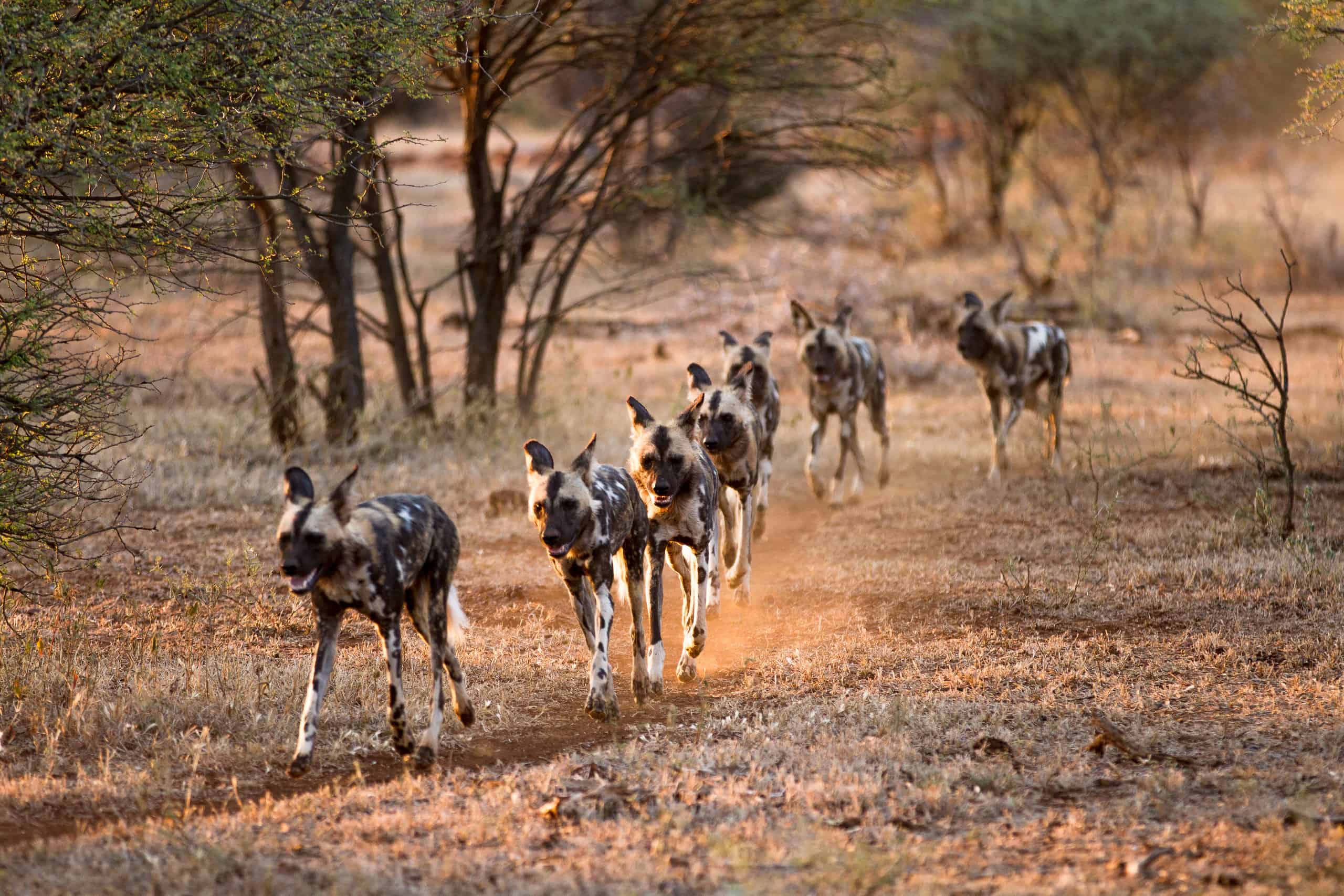
Surely this pack of wild dogs did not think that they could take on a bull elephant! They manage to get quite close but then the elephant makes it quite clear that he has had enough. With a loud trumpet he charges at them and they scatter.
Click below to watch the full video of this extraordinary encounter.
What Do African Wild Dogs Normally Eat?
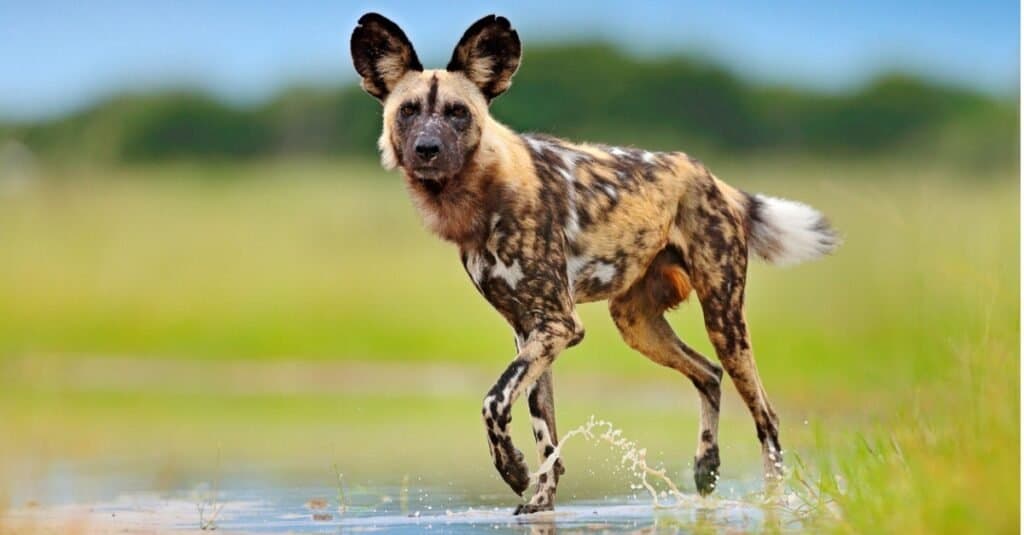
African wild dogs are known to prey on animals that are significantly larger than they are, such as antelope and zebra.
©iStock.com/Ondrej Prosicky
African wild dogs (Lycaon pictus) are the largest canid in Africa and are an endangered species. Their range has significantly reduced but they are still found in some sub-Saharan African countries including Botswana, Kenya, and Mozambique.
They are carnivorous pack predators and will have a go at most mammals. For smaller kills, they target rodents, lizards, birds, and insects. However, they also work together to hunt much larger animals including warthogs, antelope, and wildebeest. They work as a team to corner prey. If possible, they target young, old, sick, or injured animals as this gives them the best chance of success.
The elephant in this clip was none of those things! It is unlikely that this was a serious attempt at hunting.
Elephants Getting Irritated by Wild Dogs
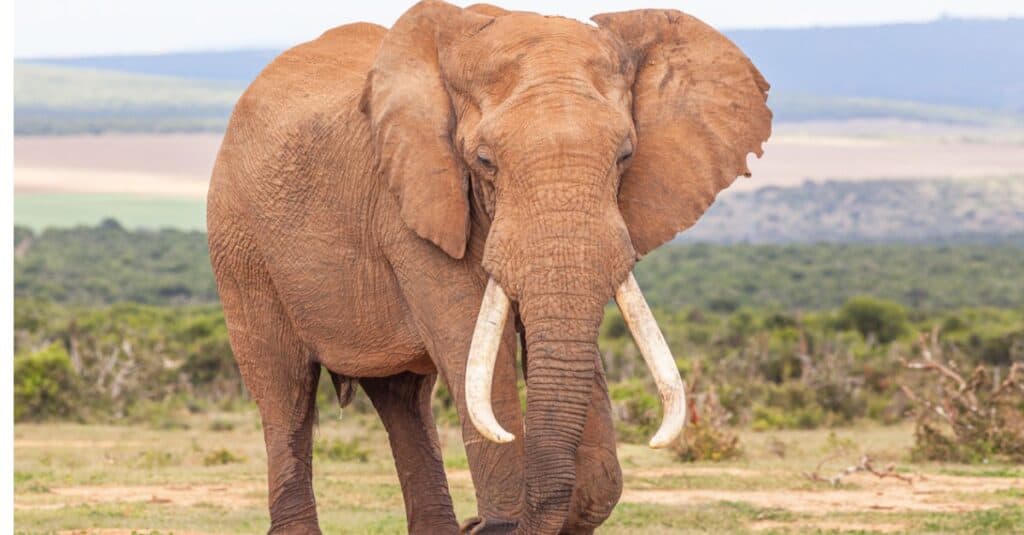
African wild dogs could not normally bring down a healthy bull elephant.
©David Steele/Shutterstock.com
This is not the only example of elephants getting pretty irritated by the presence of wild dog packs. Elephants are very protective of their young and mother elephants can be very unhappy about wild dogs hanging around near their calves. It is common for them to drive wild dogs from the area.
In this clip, the wild dogs get close enough to annoy the elephant before darting away without getting hurt. It does not help that the bull elephant is in musth when elephants are naturally more aggressive.
In another report, some African wild dogs seem to taunt some elephants just for entertainment!
How Big Do Wild Dogs Get?
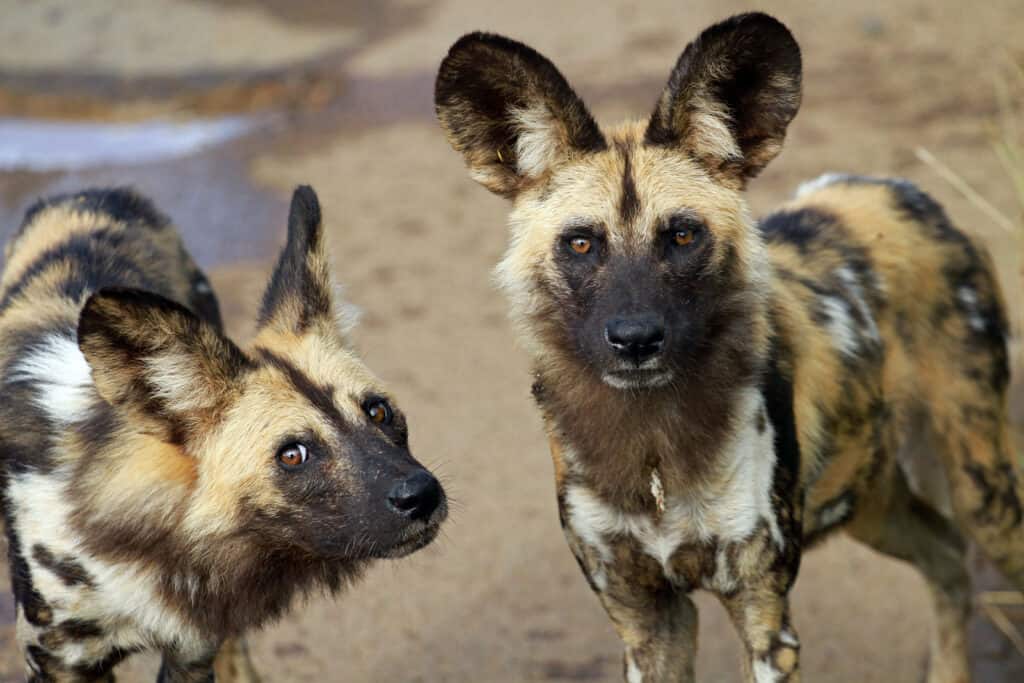
African wild dogs are known to prey on animals that are significantly larger than they are, such as antelope and zebra.
©bayazed/Shutterstock.com
African wild dogs typically weigh between 40 to 79 pounds, with males a bit heavier than females. They measure around 30 to 43 inches in length and stand about 24 to 30 inches tall at the shoulder, with females being slightly larger.
The biggest wild dog from the Ice Age was the North American dire wolf (Aenocyon dirus), which was as tall as 2 feet and 6 inches at the shoulder and weighed around 150 pounds.
Nowadays, the largest living wild dog, the modern wolf (Canis lupus), weighs 99 pounds max, which is less than the dire wolf.
What is Elephant Musth?
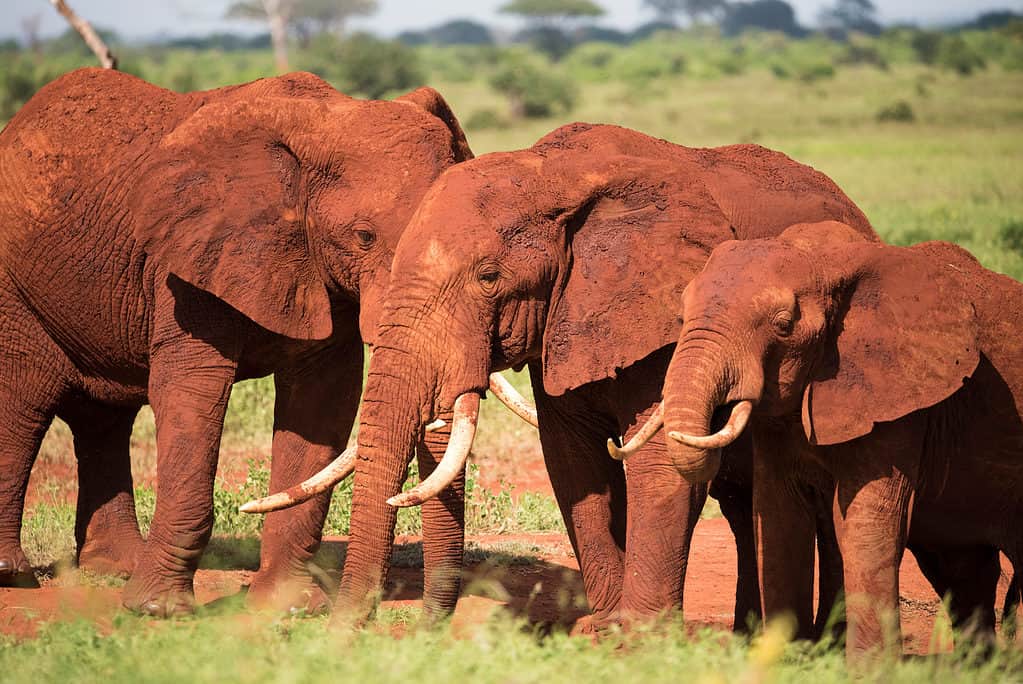
Musth is a natural periodic condition in male elephants that leads to testosterone levels surging up to six times their normal levels.
©Prasanth Aravindakshan/Shutterstock.com
Musth is a natural periodic condition that male elephants experience. At this time, testosterone levels can be six times their normal levels. It lasts for two or three months and during it, the elephants can be quite aggressive.
It is thought that musth may help elephants to get rid of other bulls from their territory or give weaker bulls the strength to gain dominance!
Thank you for reading! Have some feedback for us? Contact the AZ Animals editorial team.




